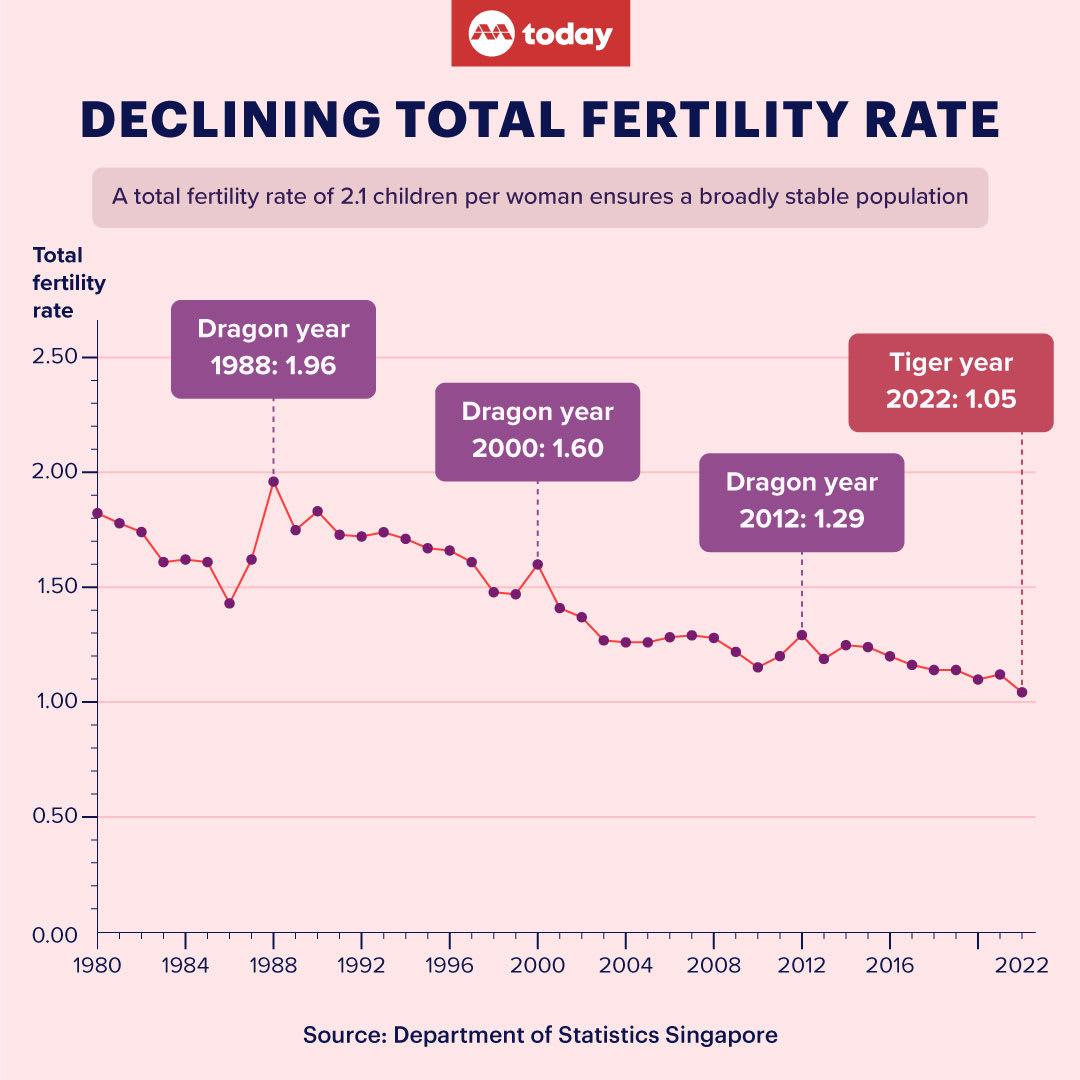Couples Are Rushing To Get Married To Have 'Dragon' Babies
The 'Dragon' isn't associated with a real animal, but why is it the most popular year for conceiving?
With the Lunar New Year just around the corner, babies conceived from now would be born in the Year of the Dragon
2024 will be the Year of the Dragon, and it is often regarded as the most auspicious sign in the Chinese zodiac cycle.
It is a widely held belief that those born in that particular year are destined for success, good fortune, and longevity.
Given this belief, many couples are rushing to get married in order to conceive 'dragon' babies.
According to The Star, there has been a surge of wedding bookings this year, with reservations for wedding banquet halls growing by 75%.
Even in this day and age, Chinese zodiac beliefs still have a strong influence on the timing of weddings and childbearing
Believing in the blessings that Dragon newborns bring to the family, birth rates in the Year of the Dragon typically surge in countries like Malaysia, Singapore, Hong Kong, and China.
Shared by TODAY, an infographic on the statistics of total fertility rates in Singapore show that there is a trend of birth rates peaking at every Year of the Dragon, with a noticeable dip every Year of the Tiger.
Newlyweds are typically advised against giving birth in the Year of the Tiger, as the zodiac is said to be associated with ferocity and rebelliousness.
Though it may all sound like superstitious nonsense, statistics on fertility rates have shown a dip during the Year of the Tiger, especially among the Chinese
The fertility rate in Malaysia reached its lowest in 50 years. Among the Chinese, birth rates dropped from 1.7 in 2021 to 0.8 in 2022.
Similarly, Singapore recorded a historic low fertility rate in 2022. The fertility rate was 1.05, which is a 0.7 drop from 2021.
"This is because the majority of the population [in Singapore] is Chinese, so the cultural effect of the zodiac creates this cyclical trend," said Associate Professor Daniel Goh, a sociologist from the National University of Singapore (NUS) in an article by TODAY.
But of course, zodiac cycles aren't the sole reason for lower fertility rates
Having children is no longer considered a societal norm. Younger generations are choosing not to have them, and there are many reasons for that.
Raising a child is a long-term commitment that involves time, energy, and financial resources. On top of that, couples nowadays are prioritising their career advancement and wealth over starting a family.
Experts say that low fertility rates aren't a cause for concern yet, as it would be more accurate to study the numbers for next year in order to see if birth rates are indeed on an accelerated decline.
If the rates remain constant or do not increase significantly in 2024, then there could be a deeper reason for the decline, as birth rates are typically expected to boom in the Year of the Dragon.


